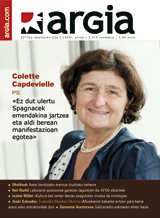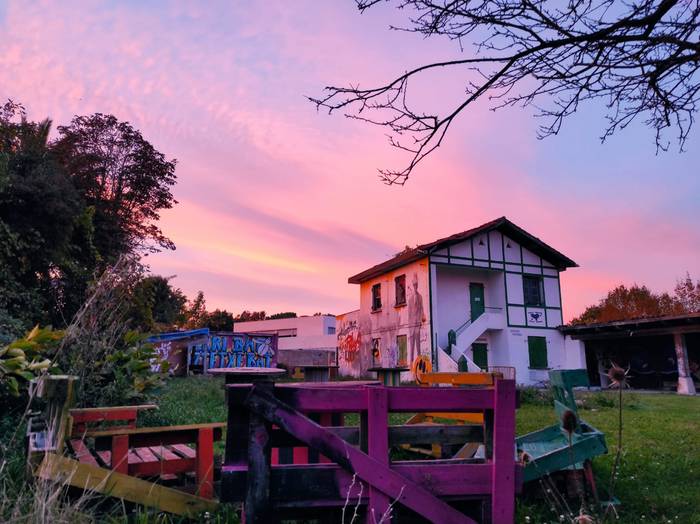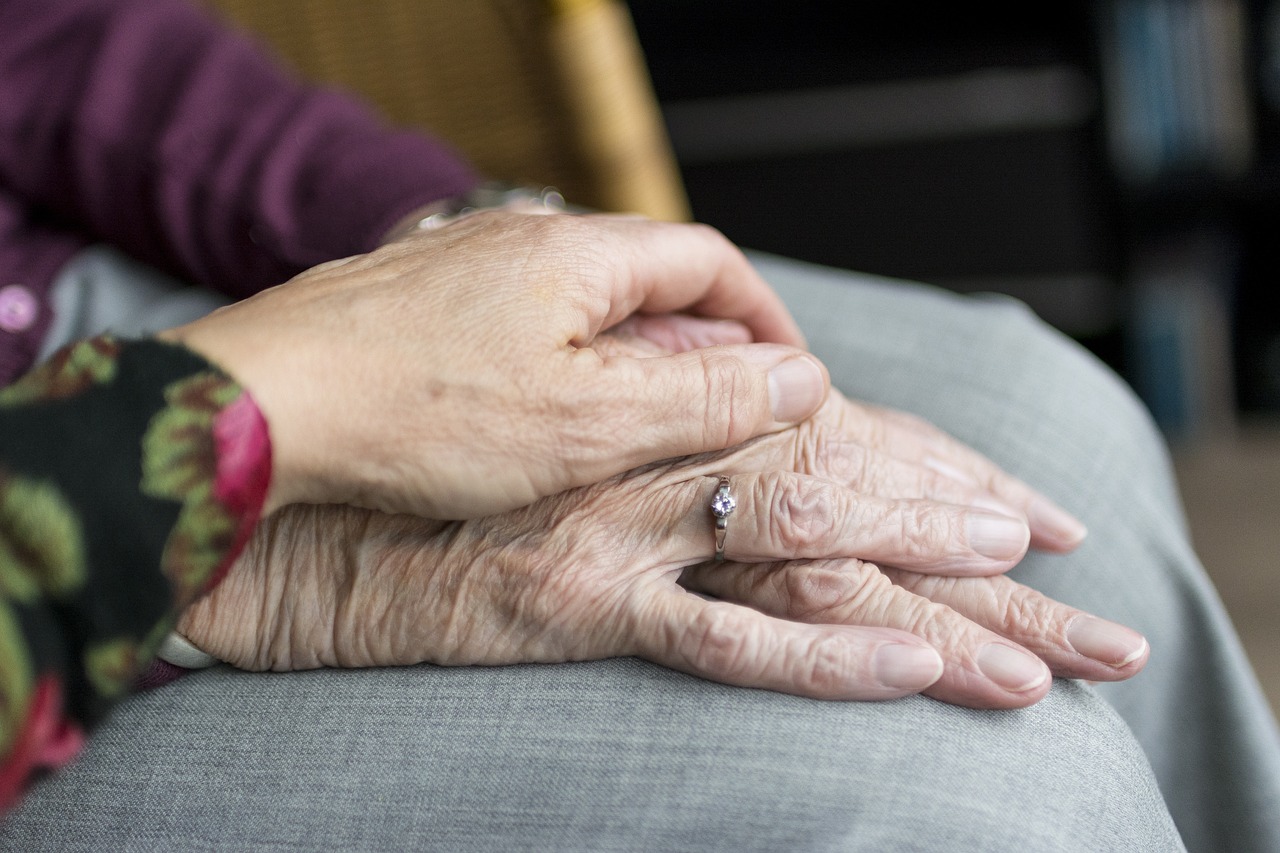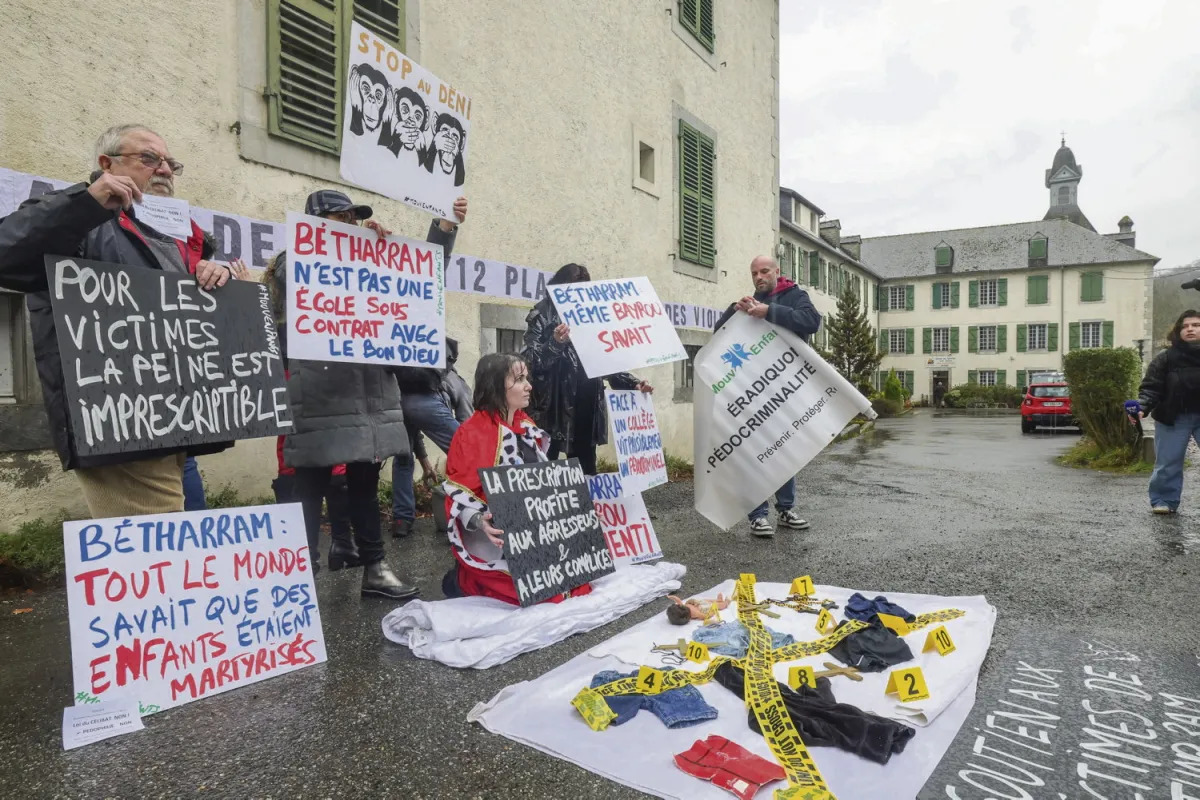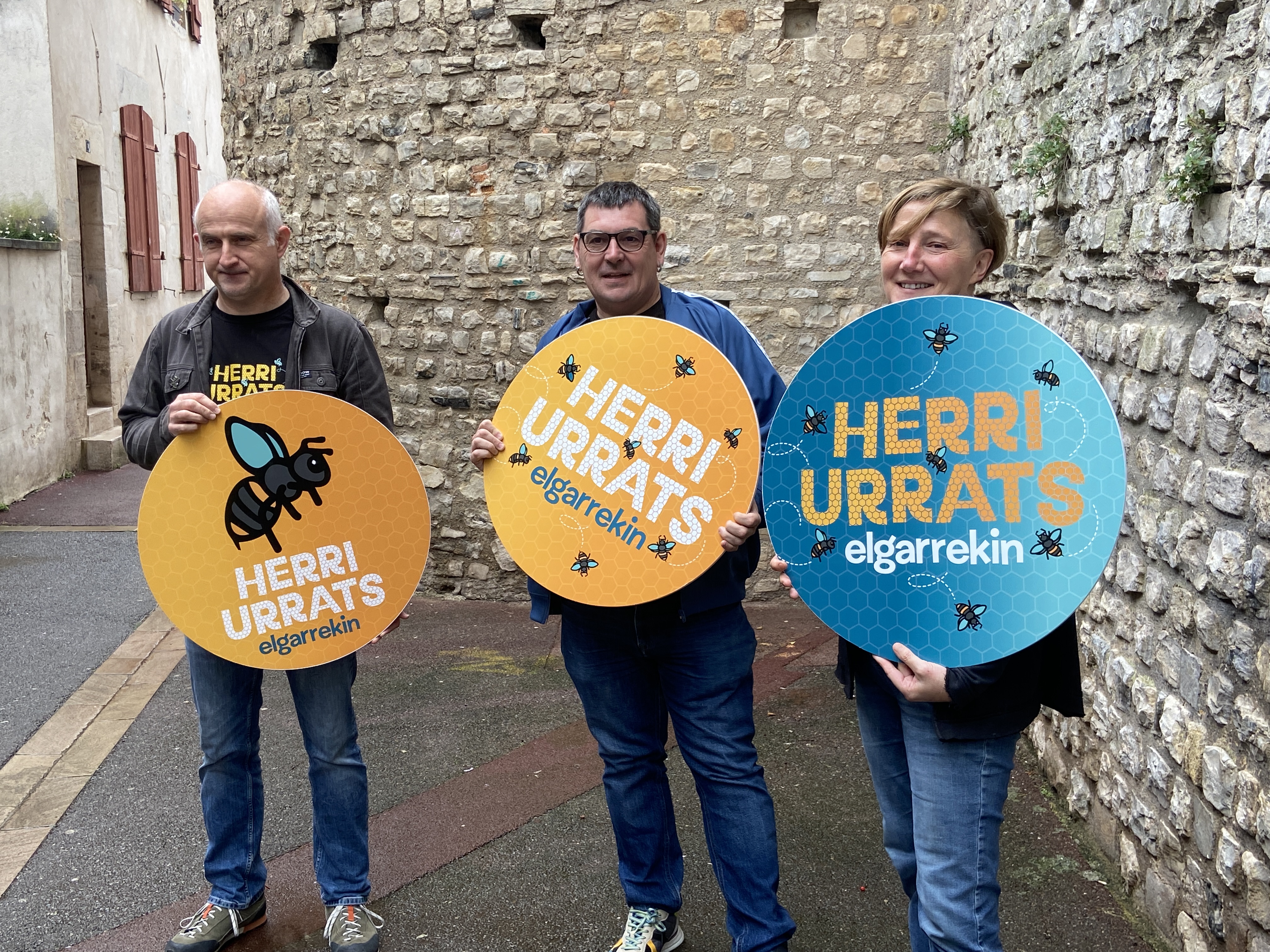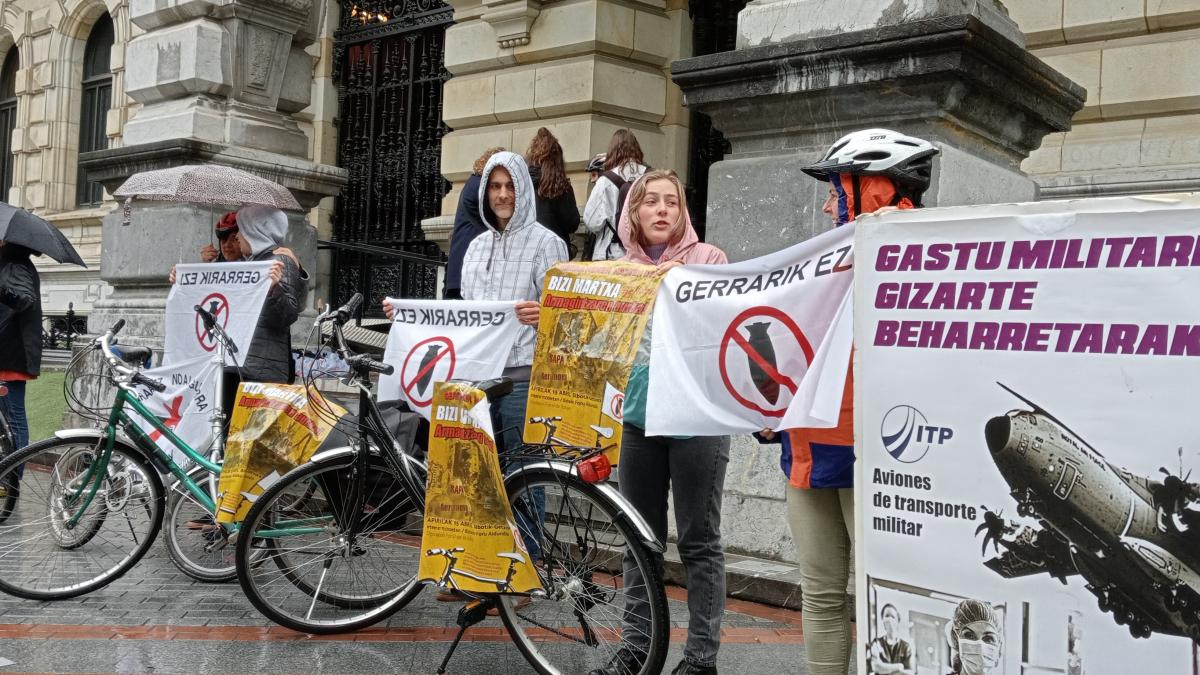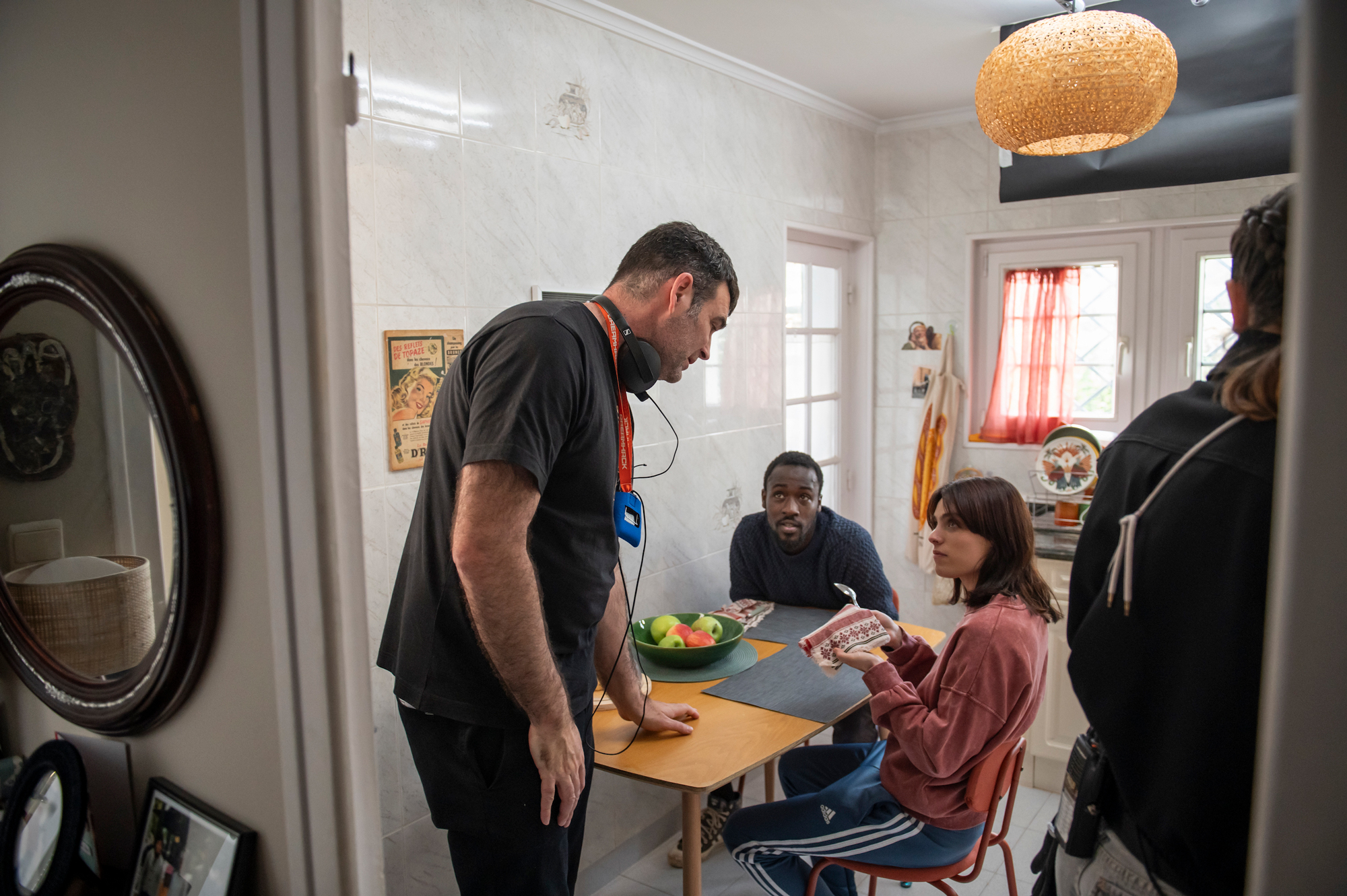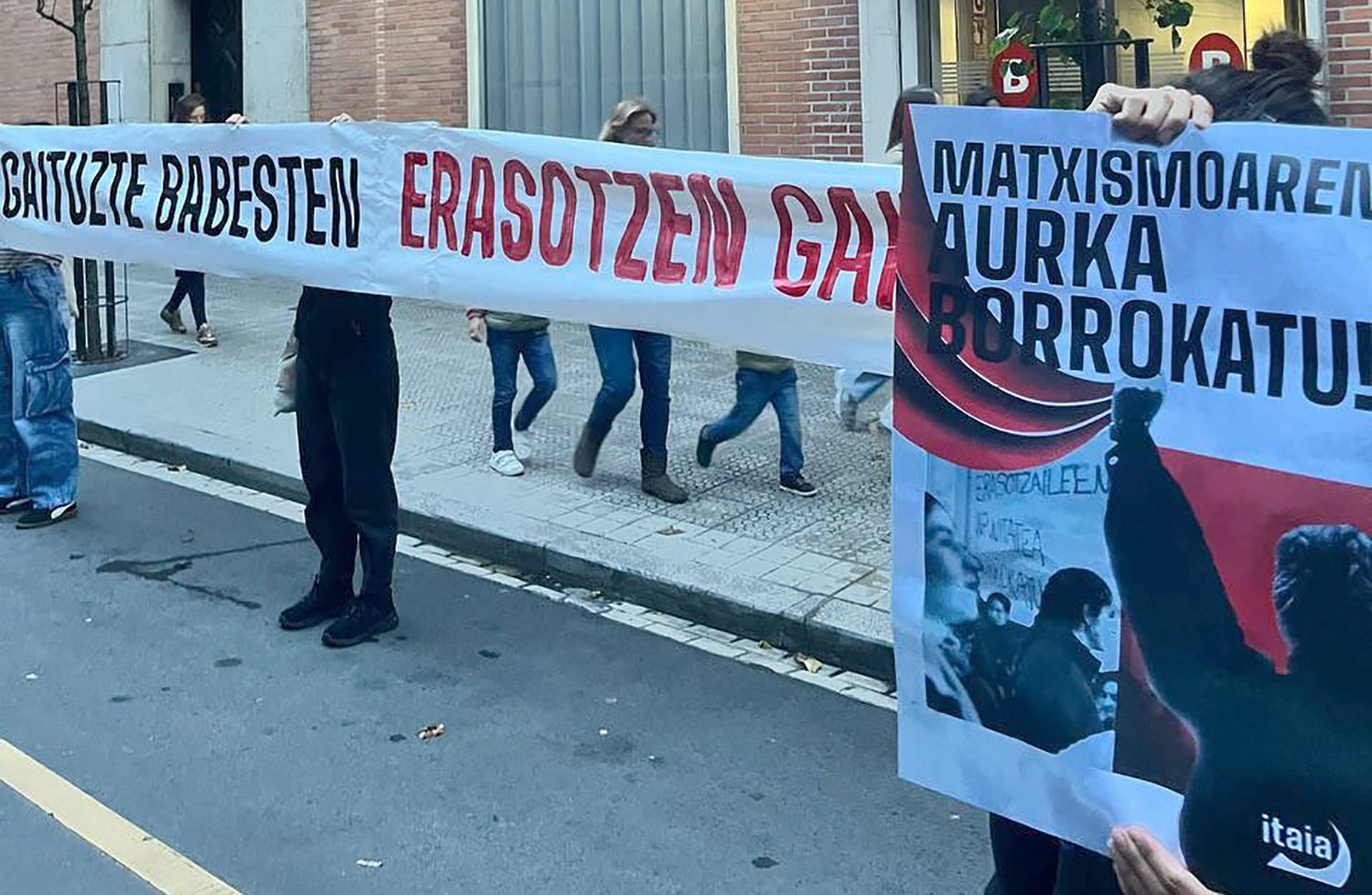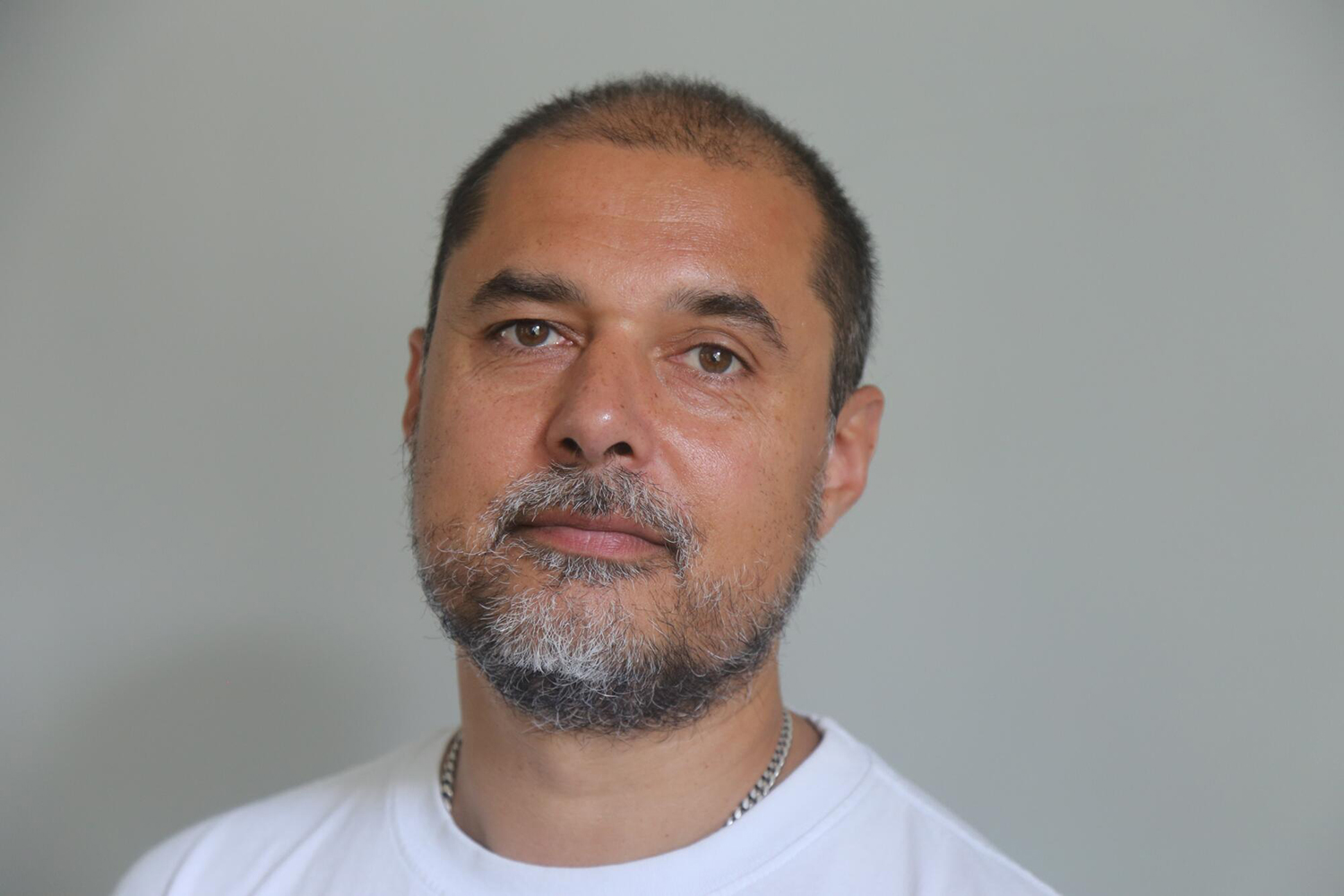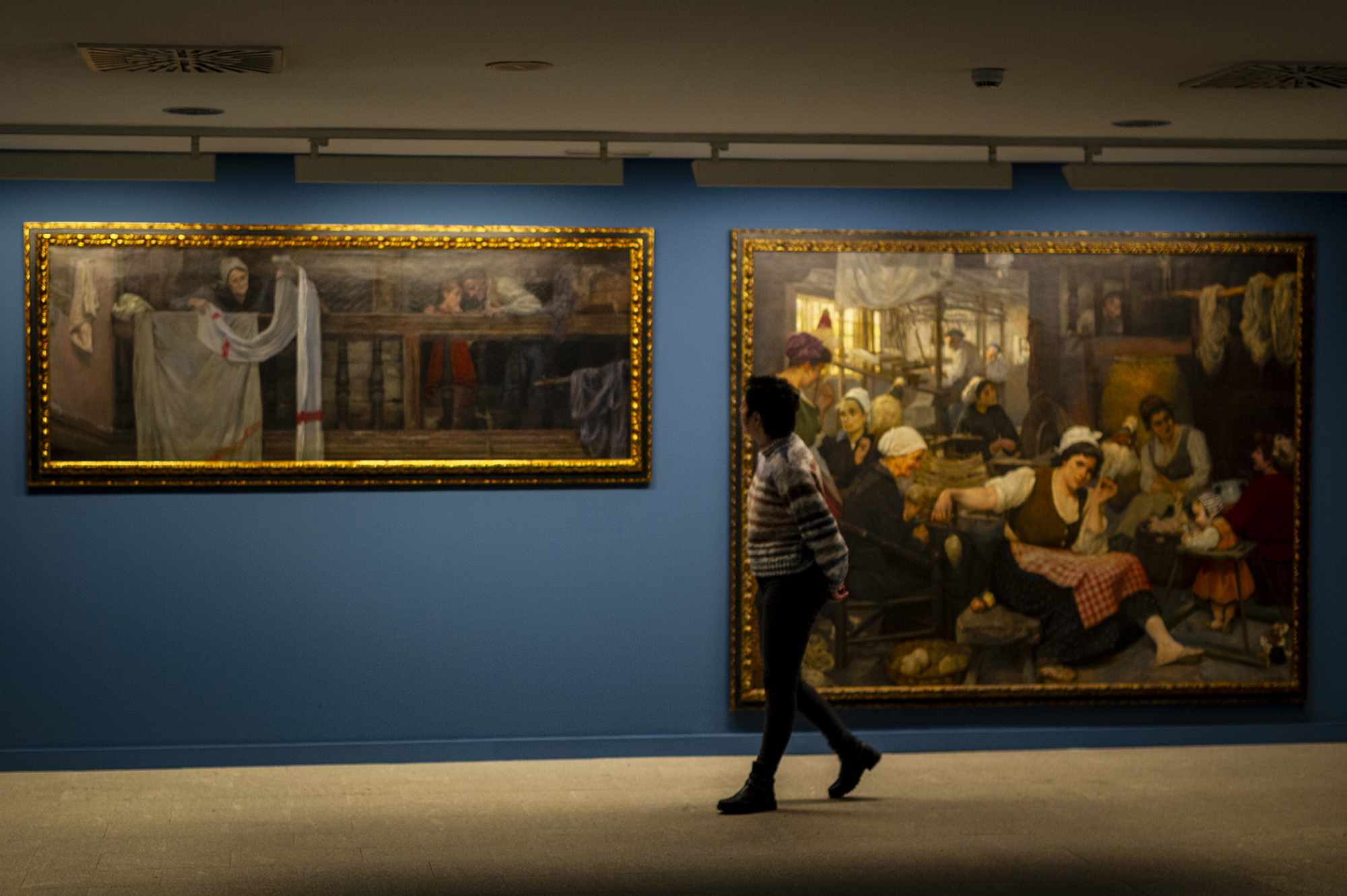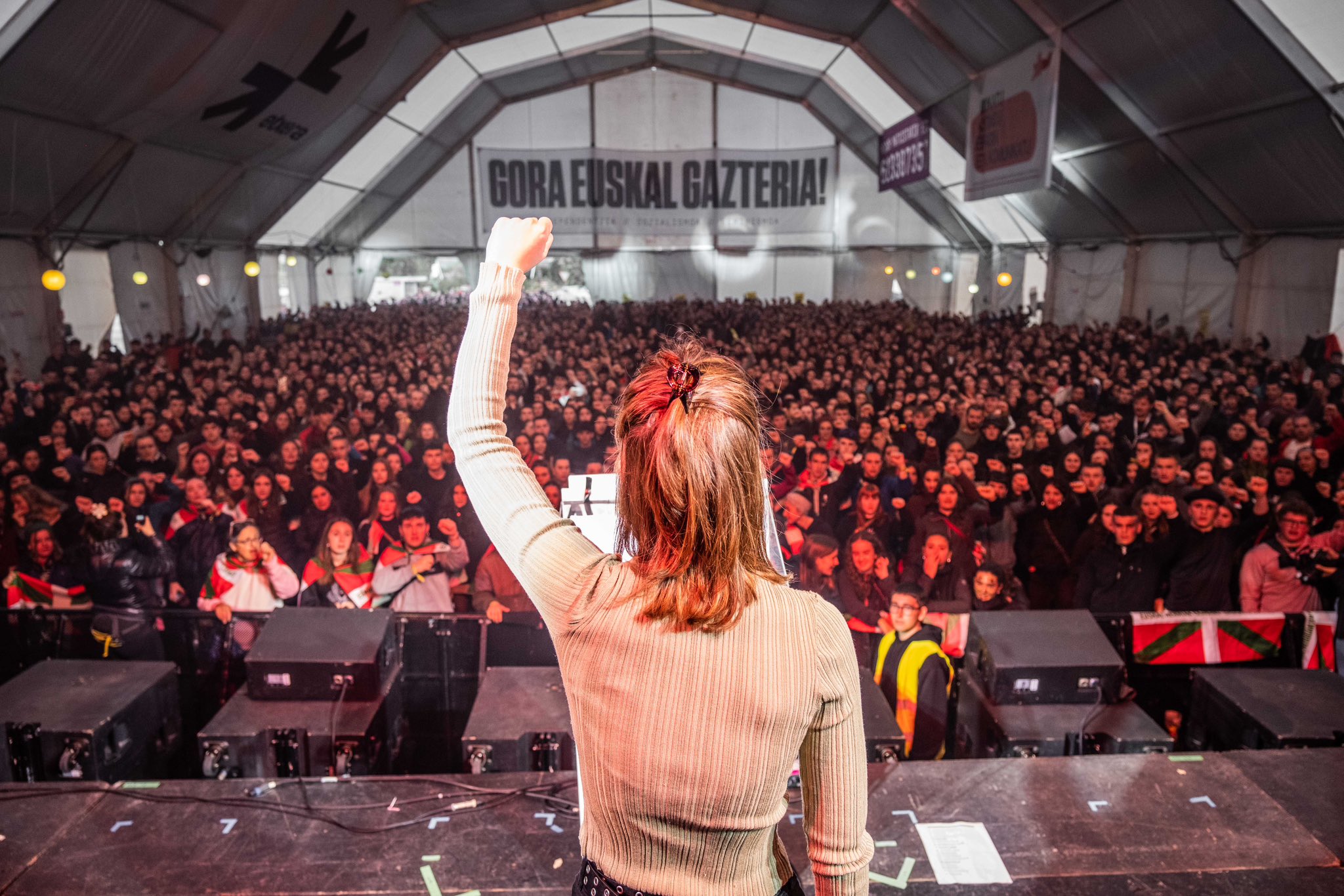"Basque mythology shows us that here women were recognized"
- Like witches, licks, basajaun and basanders, Mari could be a member of the court. And its function would be to bring in contact with us, the Basques of the 21st century, with our old forgotten mythology.
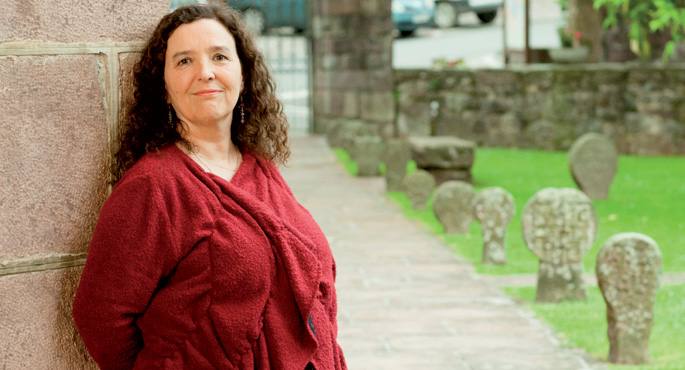
He studied history.
Yes. I've always really liked the story with the hatxes, without them, the great story, the little stories… but without getting into rumors.
Why did he come to Paris?
I was touched by the very old stork, and so after I left her there, I had to come to Euskal Herria on my own. I was born near Paris and grew up there, but like many of my friends, when I got to youth, I felt the need to get out of it. At the age of 23, I took a year to travel: Brittany, downtown France… and so on to Baiona. Here I met the people, a man, a different culture that had its own language… All I liked and stopped.
Then you came to the South?
And now I'm going to live back to the North, where I currently work most of it. I've always had one leg in the South and one leg in the North. I have work, accommodation and everything on both sides of the Bidasoa. My son is 19 years old and now I find it easier to move.
When did you learn Basque?
As soon as I got to Baiona, I started. Before I searched for a flat and found a job, I went to the Basque classes. It was clear that to know a culture you have to know the language. If you don't know the language that a culture uses, you stay in folklore. The Basque language, moreover, is a very old language and that is why many words have a special semantic burden. For example, the house. The house is not “house”. The house is a complete accommodation for the Basques, with orchards, lands and seeds from their surroundings, and the whole family that lives in it. We are from the house, not from ours.
Have you been in teaching from the beginning?
My first job was to teach French to adults. While working at Donostia, I gradually began to introduce creative techniques: songs, poetry, drawings… Naturally, because I went out like this, and I specialized in sugestopedics.
What is sugestopedics?
It's a form of learning that works on the affective aspect. After adjusting one method, I created another one. Later, I worked with the AEK faculty in the Diploma of Euskaldunization and Literacy of the UPV/EHU for eight years in the field of didactics. As I was moving in that direction, I was given the opportunity to tell stories. In this way I became more and more penetrating into this world. I studied and told in depth classical stories, and that led me to mythology. I found another world.
And what is mythology?
A system that expresses the representation of the world and the relations between the forces of the world. A mythology was a first religion. In this sense, mythology is a way of knowing what a culture is. The representations of the world that we do today are of two kinds: either totally rational and physical, or totally spiritual. In Basque mythology, no such distinction was made because it was a naturalist religion. There was a relationship between those who were on earth, but also with those who were on top. Everything is tied and I think that link is what we love so much. We have implemented this dichotomy, as we have done with many other concepts, such as the female/male.
Is there anything in this way of looking at the world that is reflected in mythology today?
Little in the social structure, but I think it is in nature. On the skin we are all the same, we all dress the same, we eat the same… but that is what drives television in general and the media, but in addition, there is real, real life, and I believe that there the peoples maintain their identity. Television generates a kind of fascination and we live immersed in it, but then we look around us and see the reality closer. Aita Barandiaran collected during the last century the beliefs and customs that were preserved in the villages and small towns. Later, others have carried out in-depth studies and now all this is being made known.
They say the culture of the Basques has been matriarchal.
Matriarchy has not been because women, despite their important role, were no more important than men. The two were the same. The decisions to take to walk the house were taken collectively and it was always the couples who took it, both young and old, but always men and women.
You call this matrialism. Has it been a peculiarity of the Basque Country?
Nowhere else in Europe are there any big signs of this. In South America or Africa yes, but in Europe we have very few traces, in addition to those that have been preserved in the Basque Country. A society manifests its values differently. In the last century, for example, a study was conducted on wage inequality between men and women. They wanted to know why, in the same position, women usually pay less and saw that in some jobs, they usually received less from the incorporation of women. As a secretary or a professor, for example. Both function and salary went down.
In Basque mythology, who is Mari?
The force of life. Representative of the macrocosm and soul of the world. It's at the highest level, but it helps us on a day-to-day basis. It's on top, but on top of the mountain, on the ground and within reach of hand, not in the sky. It is possible to talk to him, communicate to him, ask him for advice and help. It's the conceptual aspect of the person, the world of ideas, the one in the head.
And Amalurra?
It's the land itself. The physical body. Complement of Mari. In the macrocosm, Amalurra and Mari were, in the microcosm, the house and the housewife. The housewife is a female force. Very strong in pre-Indo-European Basque mythology. Then came the Aryan and with them the patriarchal models, and then came the Catholic church, more patriarchal. The penultimate external offensive, before today's globalization, was industrialization. With it there was a great cut from the previous culture: until then the numbers and Amalurra gave us wood, food and water, and we thanked them for that. With industrialization came the idea of exploiting nature, without taking into account that those things were not ours, but those we had given ourselves.
Today, women continue to assume the responsibility of the home and the family to a large extent.
But it's not just about doing or not doing, it's about seeing how it's in society. There's bleeding. That's what feminism is trying to do: see what women do differently, value. Taking care of children is not a secondary matter, but society has taken it to the background, as it has done with all that women do.
Did the concept clash here with later patriarchalism?
When the Arias arrived, the culture was closed, it was preserved. In the stories, this is very clear. Culture was preserved with Euskera. They supported culture through the Basque Country and the Basque country was also supported by culture. They came together, into the kitchen, and they've lived there for years. The fireplace is a female place and everything was kept there. In the stories it is clear that when masculine forces appear, such as the church or industrialization, in the caves of Mari it is kept. The female force is like this, it does not seek confrontation, but it is kept, cared for and hidden. It was like a stake: it was lit once a year, but every night it was covered with ashes.
Is Mari currently saved?
How not? It has not disappeared.
Do we need Mari today?
Science is trying to respond to the physical and material world, and yet there are things that it cannot explain. What religion was saying now we put it in the mouth of science, and if it says that material doesn't exist beyond what it is, we lack something: the magic of life or what can't be demonstrated. Life itself.
Today we are seeing old models fall. I like to see the French television debate programmes. There are now many economists and politicians who are going to seek solutions to the crisis, but earlier philosophers spoke often and said that this civilization is running out, as in other times the Romans and many more were over. This is over because it is creating something else. I believe that some offer the answers, the Basque culture and mythology that are being sought in the religion and mentalities of the East.
Ixabel Millet. Parisen sortua 1958ko urtarrilaren 10ean. 23 urterekin Euskal Herrira etorri eta bertan gelditu zen, liluraturik. Hamahiru urtez frantses irakasle aritu zen teknika sortzaileetan oinarritutako metodo propioak erabiliz (olerkiak, ipuinak, antzerkia…). Ipuinen eskutik helduta ibili da ordutik. Hogei bat urte daramatza irakasleen formakuntzan. “Euskal ipuinak eta mitologia” eta “Ipuin klasikoak” ikastaroak ematen ditu Irale programan; EHUk antolaturiko Euskalduntze eta Alfabetatze diplomaturan didaktika (sugestopedia) eta talde fenomenoak landu zituen urtetan eta UEUn hamaika ikastaro eman izan ditu. Kanturik gabeko herria eta Jainko-Jainkotsek ez dakite dena haurrentzako literatur lanak argitaratu ditu, besteak beste, eta itzulpengintzan ere aritu izan da. Baina gauza ororen gainetik Ixabel ipuin kontalaria da.
Uztailaren 10 eta 11n Baionan, Ixabel Milletek “Euskal Mitologia: hurbildu antzinako euskal mundura” izeneko ikastaroa eskainiko du UEUn. “Ikastaro honen xedea euskal mitologiaren altxorra ezagutaraztea da. Pertsonaia nagusiez eta haien arteko harremanaz eta, batez ere, euskal mitologiaren antolamenduaz mintzatuko gara, gure arbasoen mundura hurbilduz. Ikusiko ditugu Basajaun eta basandereak, sorginak, Mari, Amalur, Inguma, lamiak, Gaueko eta Gauargi eta bakoitzak zer irudikatzen duen. Horretarako irakurri behar da eliza katolikoak jarri duen mintzaren azpian, lehenagotik zegoena estali egin baitzuten ipuinak erabiliz, gaur egun telebistarekin egiten duten bezala”.
Hik Hasik eta EHUko Hezkuntzaren Historia eta Teoria fakultateak antolatuta, uztailaren 3an, 4an eta 5ean XIV. Hik Hasi Udako Topaketa Pedagogikoak egingo dira eta bertan Ixabel Milletek Kamishibai ikastaroa eskainiko du. “Japoniatik ekarritako teknika bat da non ipuinak antzeztoki txiki batekin kontatzen diren. Irakaslearentzat kamishibaia zeharkako bitarteko interesgarria da, eta ikasleentzat sortzaile izateko aukera izan daiteke”.
“Euskal mitologiak erakusten diguna da hemen emakumeak onetsiak zirela. Ez zen aparteko deus, beren tokia zuten besterik ez, baina gaur egungo gizartean dugun onespena baino askoz ere handiagoa zuten. Haien lanak sua mantentzea eta hildakoen ardura ziren, besteak beste”.
“Herriaren kultura ikusteko lente batzuk ematen dizkigu mitologiak. Guretzat zaila da gauden kultura eta mundua ikustea, barruan gaudelako. Mitologiak ematen digu aukera beste mundu bat imajinatzeko. Ez dut esan nahi ikusmolde hori gaur egungoa baino hobea zenik, baina bai balio digula orain duguna beste modu batez begiratzeko eta zertan sinesten dugun ikusteko. Gaur egun zientzia da gure mundua ulertzeko erantzunak ematen dizkiguna: norbait gaixotzen denean, eta arrazoia aurkitzen ez dutenean, birus bat izanen dela esaten digute adibidez, eta lehen, euskal munduan, Inguma zela esaten zuten. Inguma behintzat, izen politagoa zen”.
“Etxea biziki garrantzitsua da euskaldunarentzat. Bere mikrokosmosa da. Horregatik etxea saltzea zerbait dramatikoa izan da beti. Ikusgarria da hemen zenbat diru gastatzen duen jendeak sukaldeetan. Elkarteetan, adibidez, izugarrizko sukaldeak jartzen dira, eta hori toki femeninoa da. Hau indar femeninoarengatik da, batez ere emakumeengan dagoena, baina baita gizonengan ere”.









